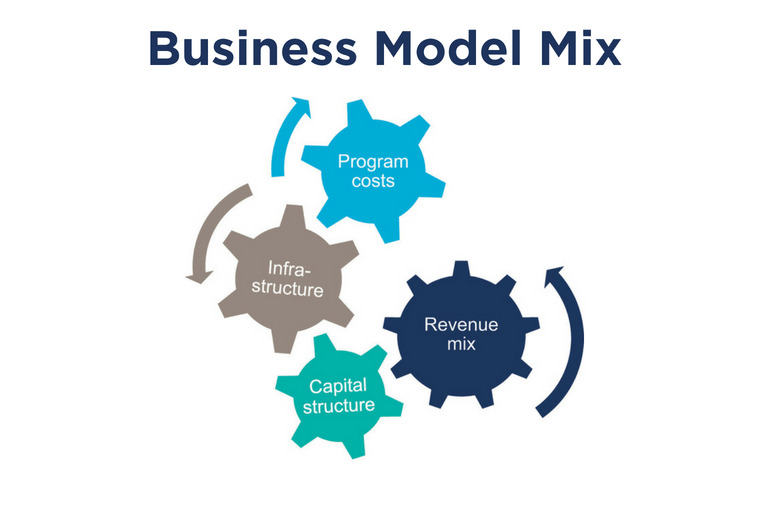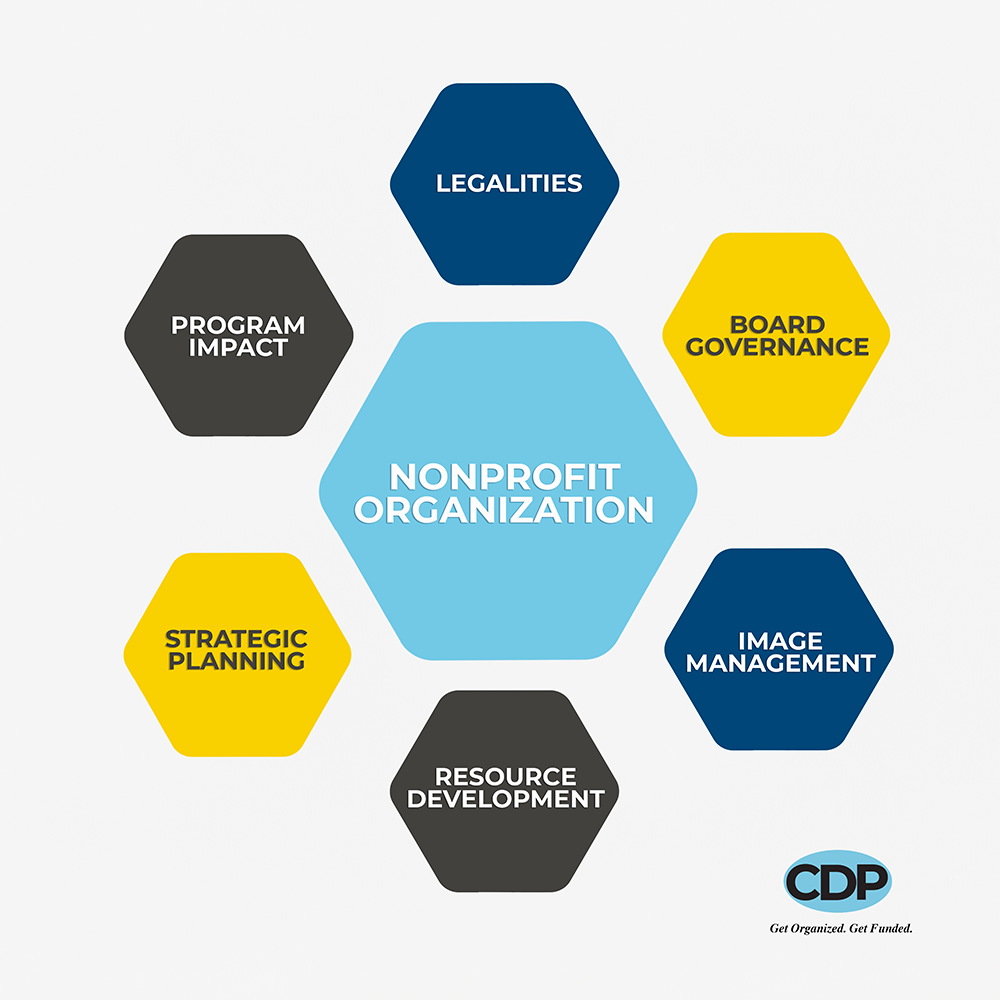Nonprofit Firm: Specialist Support for Your Mission and Area Effect
Nonprofit Firm: Specialist Support for Your Mission and Area Effect
Blog Article
Checking Out the Diverse Features and Duties of a Nonprofit Firm in Dealing With Social Issues and Supporting Modification
Nonprofit firms function as important agents of change within society, taking on a myriad of social issues with diverse techniques. Their obligations extend past mere solution stipulation; they take part in advocacy, source mobilization, and area outreach, usually functioning as a bridge in between marginalized populaces and essential solutions. By fostering cooperations and utilizing culturally appropriate techniques, these organizations attend to the origin creates of social challenges. Yet, the intricacies of their duties elevate vital concerns about effectiveness and sustainability. What are the effects of these varied functions on long-lasting area impact?
Understanding Nonprofit Firm Duties
The performance of not-for-profit agencies rests on a clear understanding of their varied duties within culture. These companies act as crucial intermediaries between the public, private, and governmental sectors, addressing numerous social concerns and promoting for modification. Not-for-profit agencies usually function as provider, providing vital programs and resources to underserved populaces. This role is crucial in filling spaces that may exist in public services, guaranteeing that at risk groups have accessibility to necessary support.
In addition, nonprofits play an essential function in advocacy, elevating awareness and affecting policy decisions that impact their communities. By taking part in research study and public education and learning, these companies help form public discourse and promote educated decision-making - nonprofit agency. They additionally act as platforms for volunteerism, mobilizing area members to add their time and skills toward collective objectives
Moreover, nonprofit agencies usually function as conveners, combining diverse stakeholders to foster collaboration and cumulative impact. This collaborative technique improves their capacity to attend to complicated social concerns effectively. Recognizing these complex roles is critical for making the most of the potential of nonprofit firms in developing lasting social change and enhancing total community health.
Area Interaction and Outreach
Reliable neighborhood engagement and outreach are fundamental components of not-for-profit agencies' techniques to cultivate connections and build depend on within the areas they serve. These efforts concentrate on comprehending area demands, advertising understanding of available resources, and motivating engagement in programs designed to resolve social issues. Not-for-profit organizations employ a selection of techniques to involve with neighborhood participants, such as workshops, informational sessions, and joint occasions.
Outreach initiatives serve to strengthen connections with diverse populaces, particularly marginalized teams that may encounter barriers to gain access to. By using culturally appropriate interaction techniques and leveraging neighborhood partnerships, nonprofits can boost their visibility and demonstrate their dedication to community empowerment. This technique not just grows a sense of belonging yet also raises the possibility of continual engagement.
In addition, effective neighborhood involvement goes beyond simple engagement; it includes proactively paying attention to community participants' responses and integrating their understandings right into program growth. This collaborative process guarantees that the solutions offered are responsive, appropriate, and customized to the special obstacles faced by the community. Eventually, promoting solid links with interaction and outreach can bring about more impactful interventions and a greater collective effort towards advertising favorable social adjustment.
Campaigning For and Plan Influence
Campaigning for functions as a vital device for not-for-profit firms to affect public policy and drive systemic change. By leveraging their knowledge and community understandings, these organizations can successfully represent marginalized populaces and address pressing social concerns. Nonprofits take part in advocacy through various techniques, including public awareness projects, grassroots mobilization, union building, and straight lobbying of policymakers.
With these initiatives, not-for-profit firms intend to shape legislation and plan frameworks that align with their mission and the demands of the areas they offer. They carry out research study, gather data, and share compelling stories to highlight the seriousness of particular issues, ensuring that decision-makers are informed and encouraged to act. This process not only amplifies the voices of visite site those influenced by social injustices yet also fosters an extra fair and comprehensive policymaking atmosphere.
Additionally, advocacy efforts typically look for to create lasting structural changes, addressing origin triggers as opposed to just easing signs. By focusing on policy impact, nonprofit firms contribute to a wider understanding of social difficulties and advertise options that can lead to lasting improvements in societal health. Eventually, campaigning for is essential to the transformative duty nonprofits play in creating a simply and equitable culture.
Fundraising and Source Administration
Not-for-profit agencies rely on robust fundraising and source monitoring strategies to support their campaigning for efforts and sustain their goals. By using a multi-faceted method, nonprofits can reduce the threats associated with reliance on a solitary financing source.
Source administration is equally important, as it includes the strategic allotment of both financial and human resources to make best use of influence. Nonprofits should develop budgets that line up with their objectives while ensuring openness and responsibility to stakeholders. This entails routine tracking of expenditures and adjusting techniques as required to optimize resource usage.

Collaboration and Partnerships
While numerous companies seek their missions individually, collaboration and partnerships can considerably boost the effectiveness of nonprofit firms. By interacting with other nonprofits, government entities, and economic sector companies, nonprofits can pool resources, share competence, and enhance their influence on social concerns. Collective efforts often cause ingenious remedies that might not be possible independently, leveraging the staminas of each partner to resolve complicated challenges.

Ultimately, efficient cooperation requires clear communication, shared objectives, and mutual respect amongst companions. By embracing a participating approach, Bonuses not-for-profit firms can develop lasting networks that not just address prompt social problems yet additionally add to long-lasting systemic modification, promoting a more equitable culture. Through collaboration, nonprofits can thrive and maximize their possibility for purposeful impact.
Verdict
Not-for-profit agencies offer as crucial entities in fostering and attending to social problems change within communities. Inevitably, the complex functions of not-for-profit firms substantially add to the quest of social justice and the enhancement of community health.
Comprehending these diverse roles is crucial for maximizing the capacity of nonprofit firms in creating lasting social adjustment and boosting general community wellness.
Effective neighborhood involvement and outreach are essential parts of nonprofit firms' techniques to develop and cultivate connections count on within the communities they offer. By working together with various other nonprofits, government entities, and personal sector organizations, nonprofits can pool sources, share know-how, and intensify their impact on social concerns.Nonprofit agencies offer as vital entities in cultivating and dealing with social problems adjustment within communities - nonprofit agency. Eventually, the diverse roles of nonprofit firms significantly contribute to the quest of social justice and the improvement of neighborhood health
Report this page